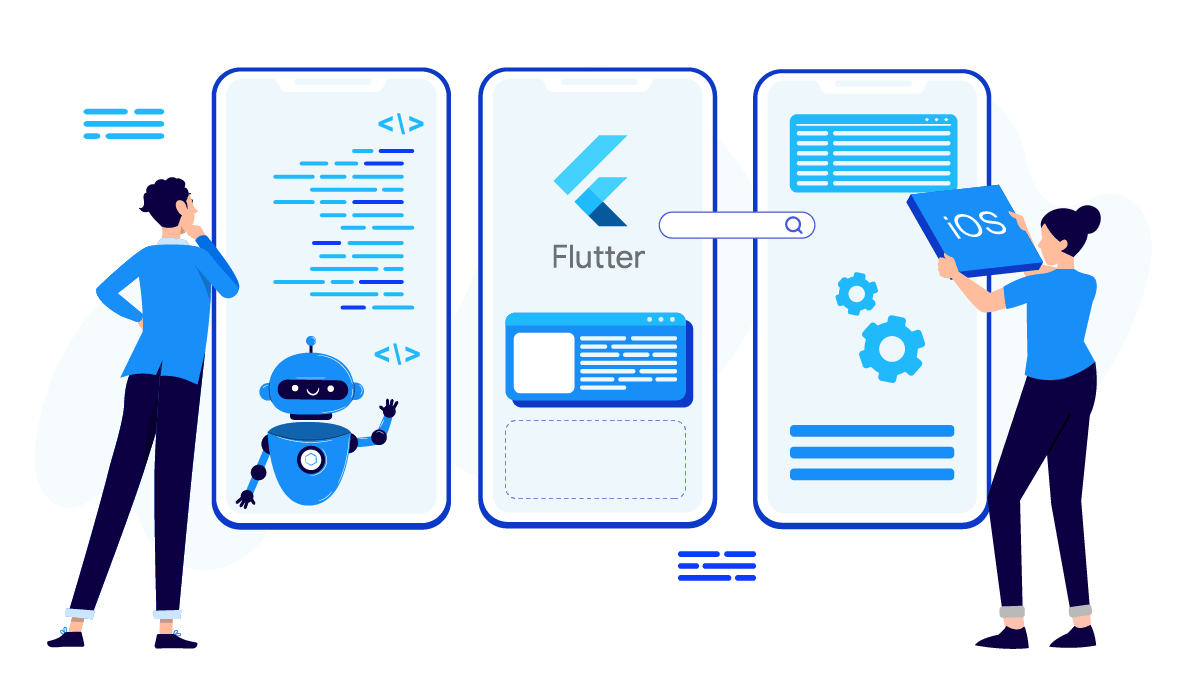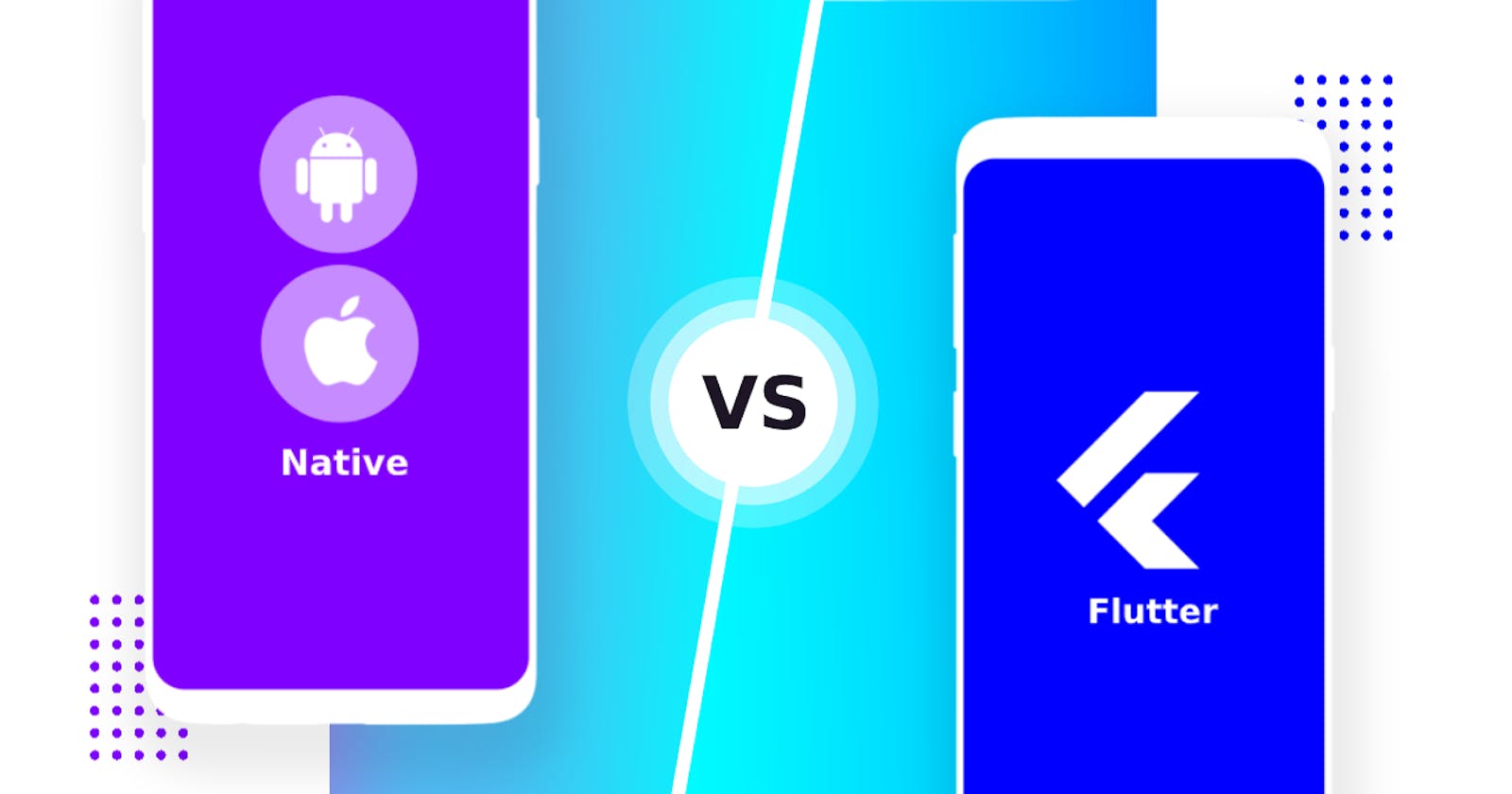Introduction:
In the fast-paced world of fintech, where security, performance, and user experience are paramount, choosing the right technology stack for your banking application is a critical decision that can significantly impact your project's success. Two prominent contenders for app development in this domain are Flutter and Native. In this blog, we will explore the strengths and weaknesses of each to help you make an informed decision for your fintech banking app.
Native App Development: Overview

Native app development involves creating applications tailored for specific platforms like iOS and Android. This approach allows for the optimization of device-specific features such as the camera, accelerometer, fingerprint, and GPS. These apps are typically distributed through app marketplaces like Google Play and the App Store.
Pros of Native Development:
Optimized Performance:
- Native development allows for fine-tuning applications for specific platforms.
Deep Integration with Platform Features:
- Native development provides direct access to platform-specific features. This is beneficial when integrating with biometric authentication methods, leveraging hardware security modules, or optimizing battery consumption - all crucial aspects of fintech banking app development.
Strict Security Compliance:
- Fintech applications must adhere to rigorous security standards and regulations. Native development allows for more granular control over security measures, ensuring the highest level of data protection and compliance.
Legacy Systems Integration:
- In some cases, fintech institutions may need to integrate with legacy systems that rely on platform-specific technologies. Native development can offer a smoother path for such integrations.
Cons of Native Development:
Maintenance of two separate codebases:
- Maintaining separate codebases for iOS and Android can be resource-intensive
Development and QA costs:
- Native app development often requires two distinct teams, resulting in higher development costs.
Flutter App Development: Overview

Flutter is an open-source UI software development kit (SDK) created by Google, designed for building visually stunning, natively compiled applications for various platforms, all from a single codebase.
Pros of Flutter Development:
Cross-Platform Advantage:
- Flutter's primary advantage is its ability to create cross-platform applications. For fintech businesses, this means developing one codebase that can run seamlessly on both iOS and Android devices. This cross-platform approach can significantly reduce development time and costs.
Rapid Development:
- In fintech, speed is often of the essence. Flutter's hot reload feature allows developers to instantly view changes made to the code, speeding up the development process. This is especially advantageous when updates and security patches need to be implemented quickly.
Consistent UI/UX:
- Maintaining a consistent user interface and experience across multiple platforms is critical in fintech. Flutter's widget-based architecture ensures that your banking app looks and behaves the same way on every device, enhancing user trust and satisfaction.
Access to Third-Party Libraries:
- Flutter boasts a growing ecosystem of third-party libraries and packages. This allows fintech developers to easily integrate essential features like payment gateways, encryption tools, and financial APIs, streamlining the app development process.
Strong Community Support:
- The Flutter community is known for its active engagement and support. In the fintech world, where security and compliance are paramount, having access to a knowledgeable community can be a game-changer when addressing complex challenges.
Cons of Flutter Development:
Challenges with platform hardware APIs:
- Hardware API integration can be more challenging with Flutter, primarily due to its cross-platform nature.
Larger final archive size:
- Flutter apps tend to have a larger archive size than native apps due to additional engine code.
Flutter vs. Native: Comparative Analysis

To assist you in making an informed decision, let's conduct a thorough comparison between Flutter and Native development across several crucial factors: performance, development time, cost, user experience, and device feature access.
In conclusion, when evaluating the choice for our banking app, Native development does hold a distinct advantage in terms of performance. However, it's important to note that our banking app may not necessitate the kind of low-latency machine learning or complex algorithms running in the background where Native's performance edge truly shines. Flutter, on the other hand, is still optimized adequately for our requirements.
Where Flutter truly excels are its advantages in cross-platform compatibility, rapid development, and maintaining a consistent user interface across different devices. These attributes align well with the needs of a fintech application. Moreover, the challenges associated with hardware API integration in Flutter can often be mitigated with the use of third-party libraries. Additionally, concerns about app size are becoming less relevant as modern mobile devices typically offer ample storage space.
On the flip side, Native development's primary drawback of maintaining two separate codebases presents a perpetual cost that should not be underestimated. In the fast-paced world of fintech, the advantages of Flutter's efficiency and versatility appear to outweigh the challenges, making it a compelling choice for our banking app. This trend is evidenced by the growing number of banks embracing Flutter, as well as the increasing adoption of Flutter by many startups and digital banks. For instance, Brazil's fintech giant, Nubank opted for Flutter to power its digital banking application, a move that has been met with enthusiastic reception, amassing over 100+ million downloads and counting.
Conclusion:
In the Flutter vs. Native debate, your choice depends on your app's specific requirements and available resources. Flutter is an excellent choice for rapid, cost-effective development, while Native is ideal for complex applications. Carefully consider all factors before making your decision.
